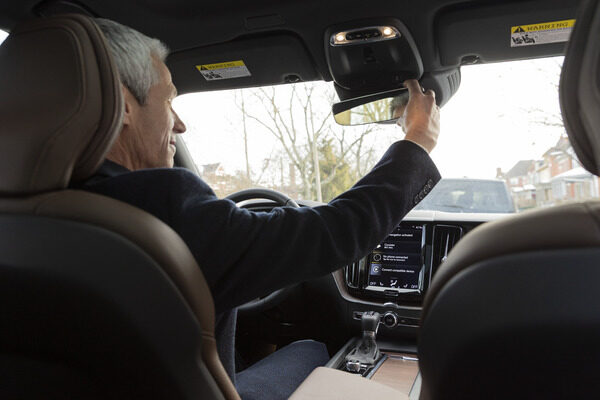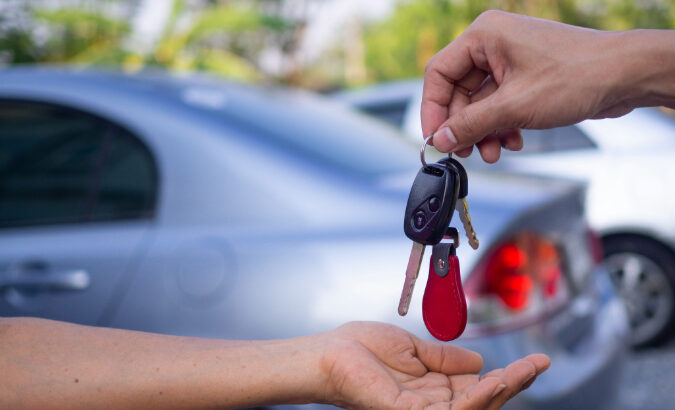
Driving in wet conditions can cause several issues, including lowered visibility or the need for longer braking distances. It can also cause your car to hydroplane.
If you’ve ever driven on wet roads or through a puddle of standing water and felt like you didn’t have control of your vehicle, you may have already experienced this. Since this can happen to any driver at one time or another, it’s important to know what to do when hydroplaning.
What is hydroplaning?
Hydroplaning or aquaplaning happens when roads are wet. Water reduces tire traction, causing your vehicle to slide or skid. Losing control of your car while hydroplaning can be particularly scary and unnerving, but there are a few precautions you can take to keep yourself safe and remain in control of your vehicle.
What causes hydroplaning?
Hydroplaning is usually caused by too much water between your tires and the road. This can cause your tires to lose contact with the surface and subsequently lose traction. Some of the contributing factors to hydroplaning include:¹
- Vehicle speed: As the speed of your tires increases in water, their traction decreases, particularly at speeds over 35 miles per hour
- Tire tread depth: Worn tire tread below 4/32 of an inch will decrease traction and increase your chances of hydroplaning
- Depth of the water: The deeper the water is, the faster you’re likely to lose traction, though you can hydroplane even with water that’s only 1/10 of an inch deep
What to do if your car hydroplanes
No matter how safely you drive, hydroplaning can still happen. If your vehicle starts to hydroplane you should follow these steps:²
- Remain calm and slow down. Avoid the natural urge to slam on your brakes. Instead, ease your foot off the gas pedal.
- Use a light pumping action on the pedal if you need to brake. If you have anti-lock brakes, you can brake normally.
- Once you’ve regained control of your car, take a minute or two to calm yourself down. Pull over in a safe location and take a few deep breaths before continuing your drive.
How to avoid hydroplaning
There are additional ways to keep yourself safe when hydroplaning. Here’s what you should do:
- Don’t try turning your steering wheel in the opposite direction that you’re sliding. While this overcorrecting is a normal reaction, the right thing to do is to gently turn the steering wheel in the direction you’re sliding (this will help you regain control).¹
- Don’t ignore tire maintenance. Keep tires properly inflated. Regularly check the tread for wear.²
- Don’t use cruise control while you’re driving in the rain or on wet roads. Your car’s cruise control system’s sensors can be less reliable, and you may lose traction.²
Keep in mind that hydroplaning can occur at any time you are driving in wet conditions. Knowing how to handle it properly can keep you, your passengers and others on the road safe.
When driving in the rain make sure to practice safe driving.
[1] “What Cause Hydroplaning?” smartmotorist.com/hydroplaning (accessed Feb. 18, 2022).
[2] “What to Do When Your Car Hydroplanes,” idrivesafely.com/driving-resources/how-to/stop-hydroplaning/ (accessed Feb. 18, 2022).
Disclaimer:
The information included is designed for informational purposes only. It is not legal, tax, financial or any other sort of advice, nor is it a substitute for such advice. The information may not apply to your specific situation. We have tried to make sure the information is accurate, but it could be outdated or even inaccurate in parts. It is the reader’s responsibility to comply with any applicable local, state, or federal regulations. Nationwide Mutual Insurance Company, its affiliates and their employees make no warranties about the information nor guarantee of results, and they assume no liability in connection with the information provided. Nationwide, Nationwide is on your side, and the Nationwide N and Eagle are services marks of Nationwide Mutual Insurance Company. © 2022 Nationwide.



